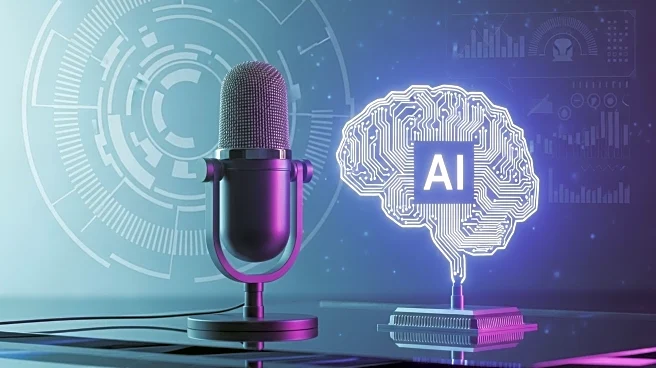What is the story about?
What's Happening?
Researchers at Washington University in St. Louis are utilizing artificial intelligence to analyze speech patterns for psychological assessment. These AI tools can detect subtle cues in speech, such as word choice, tone, and pacing, which may indicate personality traits or early signs of mental health conditions. The technology offers a more comprehensive and faster analysis than traditional methods, potentially transforming psychological assessments. However, researchers caution that AI models must be trained on diverse data to avoid biases that could misinterpret cultural differences in speech patterns.
Why It's Important?
The application of AI in psychological assessment represents a significant advancement in mental health diagnostics. By providing a scalable and efficient method for analyzing speech, AI can support clinicians in identifying psychological conditions more accurately. This technology could lead to earlier interventions and improved patient outcomes. However, the potential for bias in AI models highlights the need for careful development and training on diverse populations. As AI becomes more integrated into healthcare, it is crucial to address these challenges to ensure equitable and reliable assessments across different cultural groups.
What's Next?
The development of AI tools for psychological assessment is ongoing, with researchers focusing on refining models to ensure fair treatment of diverse populations. Future research will likely explore the differences between written and spoken language in psychological analysis, as well as the minimum data required for accurate assessments. As AI technology continues to evolve, its integration into clinical practice will depend on rigorous evaluation and validation. The potential for AI to revolutionize psychological assessment is significant, but it must be approached with caution to avoid unintended consequences.
Beyond the Headlines
The ethical implications of using AI in psychological assessment are profound. Ensuring that AI models do not perpetuate existing biases is critical to maintaining trust in these technologies. Additionally, the use of AI in mental health raises questions about privacy and data security, as sensitive information is analyzed and stored. As AI tools become more prevalent, establishing clear guidelines and regulations will be essential to protect patient rights and ensure ethical use.















